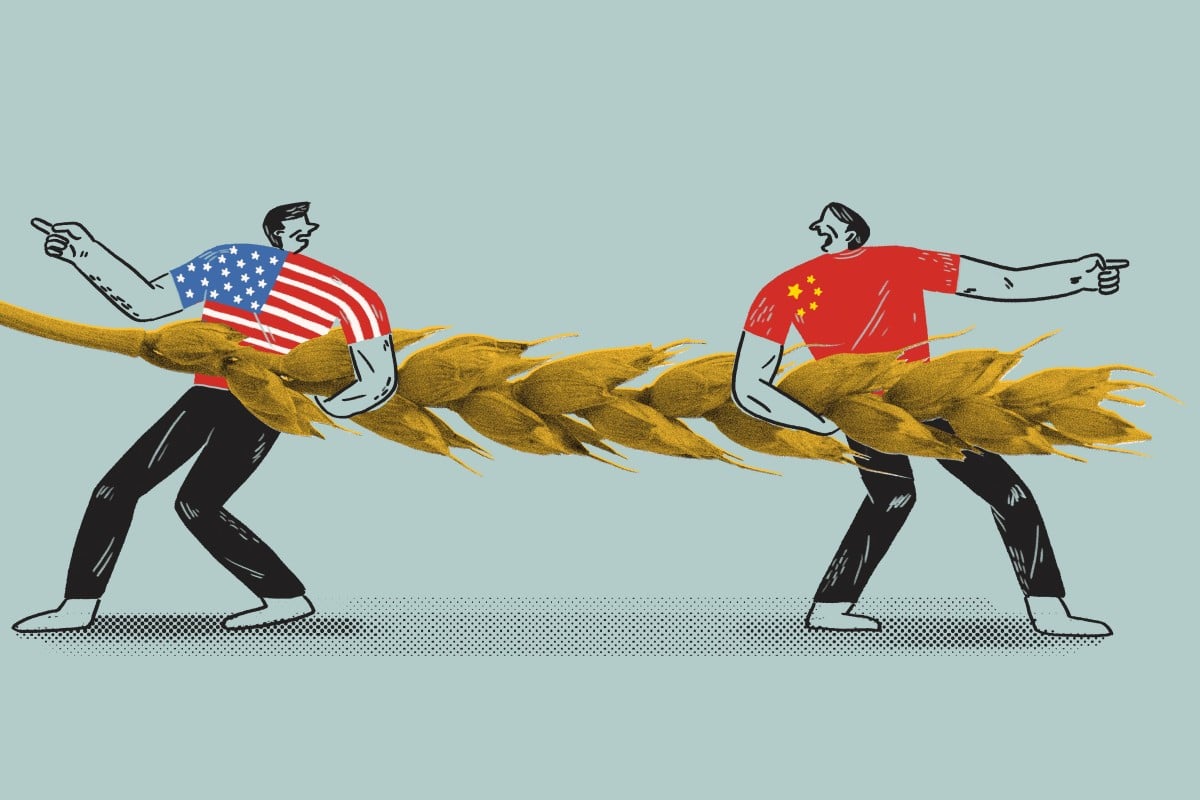Keegan Elmer
 In the first of a series on the trade war, Keegan Elmer looks at why China is resisting US demands to cut back on agricultural subsidies.
In the first of a series on the trade war, Keegan Elmer looks at why China is resisting US demands to cut back on agricultural subsidies.
For Han Yahui in the farming town of Ulanhot in Inner Mongolia, the opening of China’s soybean market to imports in the late 1990s was a harbinger of things to come.
“I witnessed how our industry [almost] collapsed because of cheap imports,” Han said.
Han runs a rural cooperative specialising in organic farming of wheat, soybean and rice on about 133 hectares (328 acres) in northeast China.
She is one of up to 200 million farmers in China who rely on government subsidies and other aid to buy new farm equipment and to produce strategic crops.
Han’s cooperative, for example, receives 300 yuan (US$43.50) in annual government
“Government subsidies are very important to help cover our labour costs,” she said. “The subsidies make sure that we won’t lose money
“I don’t want to see our farmers make nothing after a year of hard work.
“After all, farming is still a major source of income for people who live in rural China today.”
Fast forward and those subsidies are one of the US’ targets in its trade war with China as Washington puts pressure on Beijing to cut back support for the agricultural sector.

China’s vice-premier Liu He (left) says goodbye to US Treasury Secretary Steven Mnuchin (centre) and US Trade Representative Robert Lighthizer (second from right) after trade talks between the two countries in Washington earlier this month. Photo: EPA-EFE
But if Beijing were to bow to those demands, its bottom lines of ensuring the security of the country’s food supply and social stability in the countryside would be under threat.
The latest round of US-China trade talks in Washington broke down in early May.
Washington blamed Beijing for reneging on promises, and raised tariffs on US$200 billion worth of Chinese imports from 10 to 25 per cent, reigniting the tariff war that many had thought was close to ending.
China struck back with its own retaliatory tariffs on US$60 billion of US goods, zeroing in, as it had before, on US agricultural products, of which China is a major buyer.
There is no clear account from either side of what specific stumbling blocks caused the breakdown in the talks, but those with knowledge of the matter have said that disagreements over intellectual property protection and China’s state subsidies for industry were key sticking points.
In agriculture, the US pushed China to drop price supports on wheat, corn and other key products, on which Chinese farmers rely to stay afloat.
After the latest round of talks in Washington, China’s chief negotiator, Vice-Premier Liu He, told selected Chinese media that Beijing had not reneged on promises made, adding that the differences lay in “matters of principle”.
No comments:
Post a Comment